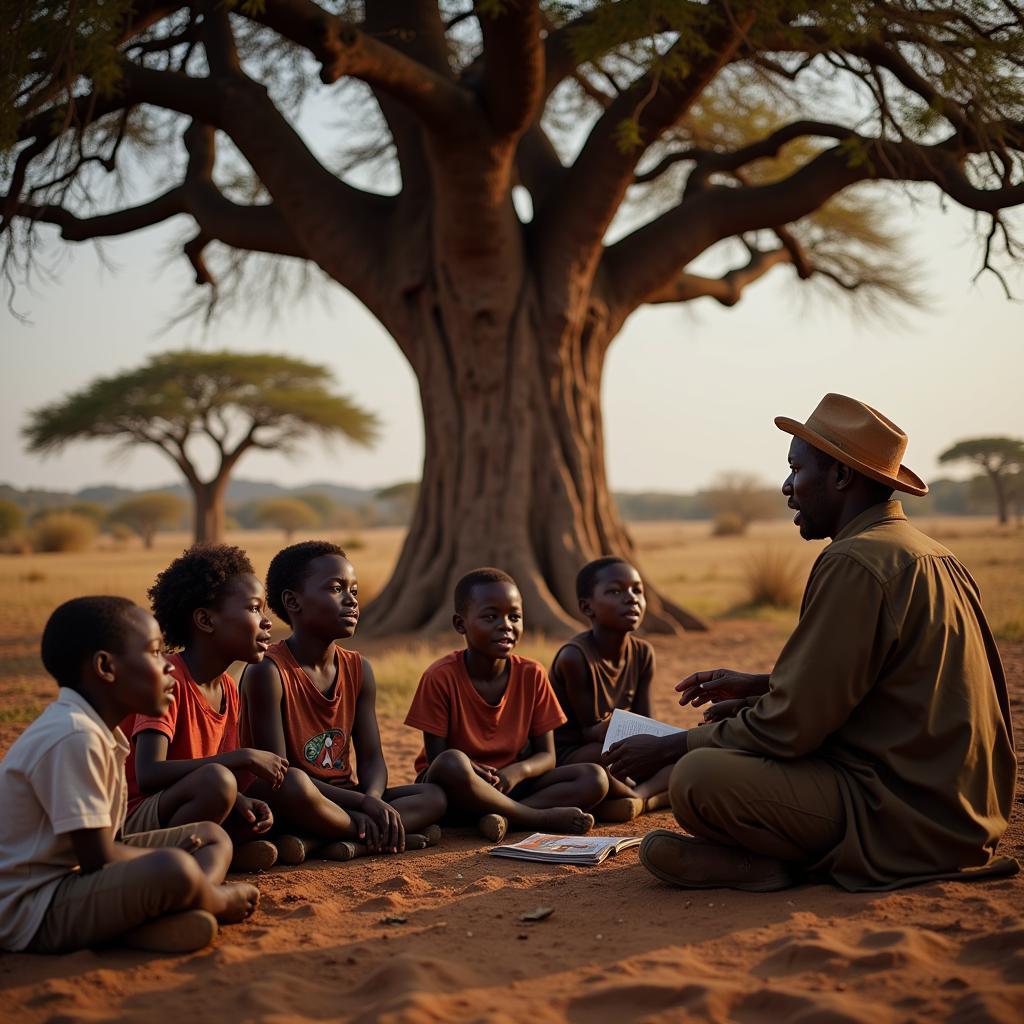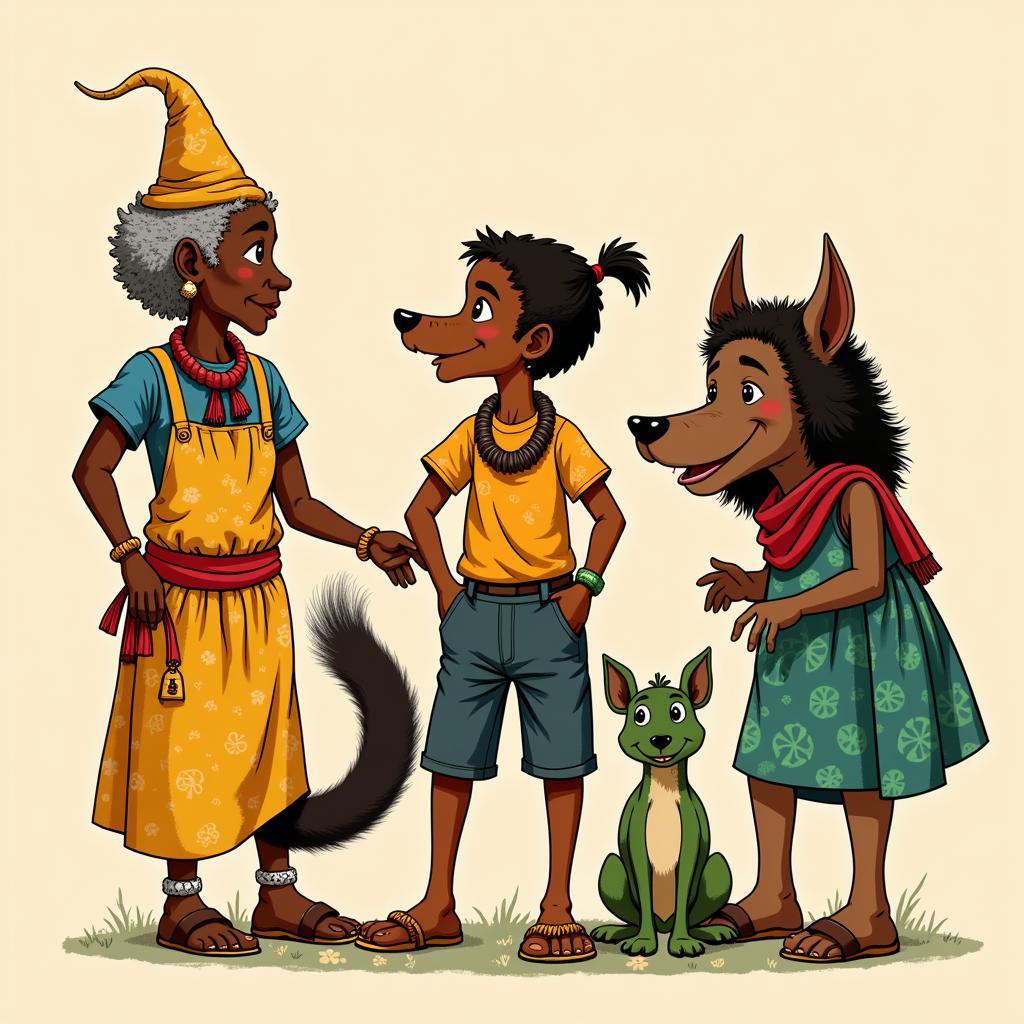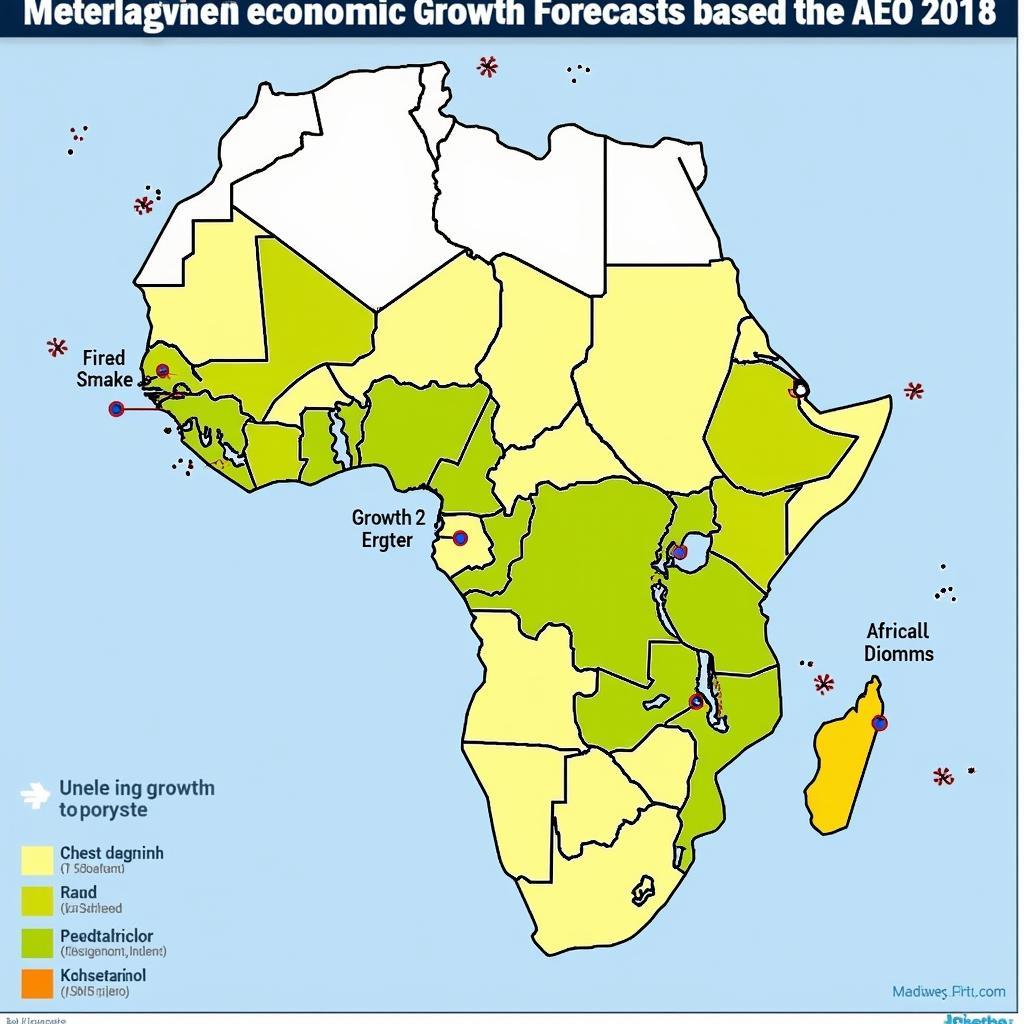African Folk Tales with Morals: Life Lessons from the Motherland
African folk tales are more than just bedtime stories; they are the lifeblood of the continent, passed down through generations to entertain, educate, and instill moral values. These tales, rich in symbolism and wisdom, offer a glimpse into the heart of african folklore and provide timeless lessons for navigating the complexities of life.
Why African Folk Tales Matter
From the savannas of the east to the rainforests of the west, each region of Africa boasts a unique collection of folk tales. They often feature animal characters imbued with human traits, cunning tricksters, wise elders, and mythical creatures, all intertwined with the natural world.
These stories serve as a powerful tool for teaching children and adults alike about important values like honesty, kindness, perseverance, and respect for elders. By exploring themes of good versus evil, love and loss, courage and fear, they offer guidance on how to live a fulfilling life in harmony with oneself and others.
 African Storytelling Tradition
African Storytelling Tradition
Unveiling Universal Truths: Common Morals in African Folk Tales
While the characters and settings may differ, a common thread runs through African folk tales: the emphasis on morals. Let’s explore some recurring themes and the valuable lessons they impart:
1. The Triumph of Good over Evil:
A prevalent theme in many African folk tales is the battle between good and evil, with good ultimately prevailing. These stories reinforce the belief that righteous actions lead to positive outcomes, even in the face of adversity.
Example: The story of Anansi the Spider, a popular character in West African folklore, often depicts him as a trickster. However, even his cunning schemes ultimately teach lessons about the consequences of greed, dishonesty, and the importance of using wit wisely.
2. The Importance of Respect and Obedience:
Respect for elders and those in positions of authority is a cornerstone of African societies. Many folk tales highlight the consequences of disrespect and disobedience, emphasizing the value of listening to and learning from those with more experience.
Example: In a Zulu folk tale, a young boy disobeys his father’s warning about venturing into the forest. His arrogance leads him into danger, illustrating the importance of heeding wise counsel.
 Characters in African Folk Tales
Characters in African Folk Tales
3. The Power of Perseverance:
Life is not without its challenges, and African folk tales often emphasize the importance of perseverance in the face of obstacles. These stories teach valuable lessons about resilience, determination, and the belief in one’s ability to overcome adversity.
Example: The tale of the Little Tortoise who wanted to fly teaches a valuable lesson about believing in oneself and never giving up on your dreams, no matter how impossible they may seem.
4. The Value of Community and Unity:
Across Africa, community plays a central role in daily life. Folk tales often highlight the importance of cooperation, sharing, and looking out for one another. They emphasize that a strong community is built on the foundation of mutual support and understanding.
Example: The story of the Bantu people and the origin of the drum showcases how working together and using each person’s unique talents can benefit the entire community.
The Enduring Legacy of African Folk Tales
African kid moral stories continue to resonate with audiences worldwide, transcending cultural boundaries. These tales offer:
- Entertainment and Escapism: They provide a source of entertainment, transporting listeners to magical worlds and introducing them to fascinating characters.
- Cultural Preservation: Folk tales play a crucial role in preserving and transmitting cultural traditions, beliefs, and values across generations.
- Moral Compass: They serve as a moral compass, guiding individuals towards ethical behavior and promoting social harmony.
- Universal Lessons: Beyond their cultural significance, African folk tales offer universal truths and life lessons that resonate with people from all walks of life.
Conclusion
African folk tales, with their enchanting narratives and profound morals, offer a timeless window into the soul of Africa. These stories remind us of the importance of integrity, perseverance, respect, and community – values that remain relevant in our modern world. By listening to and learning from these ancient tales, we embark on a journey of self-discovery and gain a deeper understanding of ourselves and the world around us.



